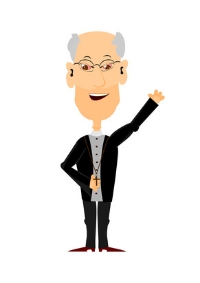“Boater[1] Confirmation Number”
Amer Zahr graciously gave permission for us to share this short comedy sketch with you. Immediately below is a transcript. After that is an explanation of the humor.
Operator: Okay, sir, we have completed your reservation. Are you ready for your confirmation number?[2]
Customer: Sure, go ahead.
O: Okay, it’s going to be A as in “apple.”
C: Okay.
O: P as in “Peter.”[3]
C: What?
O: P as in “Peter.”
C: You mean B as in “boy.”
O: No, I mean P as in “Peter.” Not B as in “boy.” I said P, not B.
C: Huh?
O: I said P, not B.
C: Okay, whatever.[4]
O: Then it’s going to be the letter O as in the “Occupation of the Palestinian people.”[5]
C: What? Excuse me?
O: Okay, then it’s going to be the letter H.
C: What was that?
O: H! H!
C: “Etch” as in “Etch-a-Sketch”?[6]
O: H! H as in “Harry.” H.
C: Oh, H.
O: Yeah, H.
C: H.
O: H.
C: H.
O: H.
C: Fine.
O: Okay. Then, finally going to be the number 6.[7]
C: What (in the h…)?[8]
O: The number 6.
C: Sir, I cannot understand anything that you are telling me.
O: 6...6. Are you saying I can’t count?[9] 6. 6. Fine. You want me to count? I count to 100 for you, okay? 1-2-3-4-5-6-7-8-9-10-11-12-13-14-15-16-17-18-19-20-21-22-23-24-25-26-27-28-29-30-31-32-33-34-35-36-37-38-39-40-41-42-43-44-45-46-47-48-49-50-51-52-53-54-55-56-57-58-59-60-61-62-63-64-65-66-67-68-69-70-71-72-73-74-75-76-77-78-79-80-81-82-83-84-85-86-87-88-89-90-91-92-93-94-95-96-97-98-99-100. Okay? I can count to fucking 100.[10]
C: All right, sir. No need to...
O: Well, you know, I can count, okay?
C: All right. I got it.
O: Okay. Would you like me to repeat that for you?
C: Shit.
Explanations and Background: 1. A common slang term for immigrants in the Arab community is “boaters.” This refers to new arrivals who “just stepped off the boat” into the new country (even if the immigrants arrived by airplane). 2. Many monolingual Americans are frustrated by the foreign accents of non-native English speakers answering the phone when they call for customer support. In this case, a white American is getting a confirmation number for his reservation, and an Arab operator is handling the call.
3. The Arabic language doesn’t use the P sound, so they have a hard time distinguishing P and B when speaking English. (In this case, “Peter” sounds like “beater.”) Americans use words to help distinguish letters that sound alike: B/P, C/Z, F/S, M/N, B/V.
4. Americans say “whatever” when they are frustrated or don’t care.
5. Palestinians had been living in Palestine for 600 years until the United Nations created the state of Israel. Since 1948, Israel has taken more and more of the Palestinian lands, so a persistent Palestinian conversation is how they live under foreign occupation. Here, Zahr jokes that Palestinians even bring up this subject when it is unrelated to the business at hand.
6. An Etch-a-Sketch is a child’s drawing toy.
7. Arab speakers have a hard time saying consonant clusters like the K+S sound of the letter X (like in “six”).
8. “What in the hell?” is a frustrated way of communicating confusion or lack of understanding.
9. The Arab operator is frustrated when the native speaker doesn’t understand him. Even though he is not a native speaker, he is proud of his intelligence. He eventually “proves” his skills by counting (tediously) to 100.
10. The humor here is compounded by the operator’s repeated mispronunciation of “sikas” and “sikasty.

















